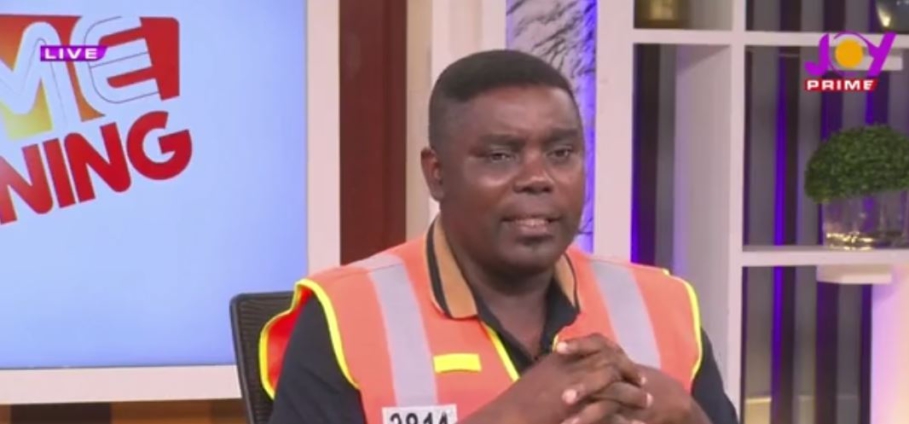The National Disaster Management Organisation (NADMO) has said adequate measures are being implemented to forestall any flooding catastrophe during the rainy season.
While embarking on public education and sensitisation programmes, the outfit says it will soon be inspecting flood-prone areas in the capital and other cities to reduce the impact of floods when the rains strike.
In an interview with JoyNews, the Communications Director for the Organisation, George Ayisi, added that some major drains have already been dredged as attempts are being made to identify safer places for stranded people.
“In partnership with the assemblies, some areas are dredged and anytime soon, maybe next week, the Director-General and the team will pay visit to some of the flood-prone areas to carry out inspections and see how prepared we are as far as the drains are concerned.
“There are some identified areas that we want to go. We identify safe havens where they can easily access and seek refuge till the rains are over because we know when the floods get there, it’s so dangerous and so that’s what we do,” he said.
On Sunday, April 3, some residents of Keta and Agavedzi in the Volta Region were displaced by tidal waves, leaving many homeless.
Some moved to higher grounds to seek shelter, while others had no choice but to sleep on mattresses along major roads.
In a related development, more than 3,000 persons were forced out of their homes after tidal waves swept through homes in the Ada East and West districts of the Greater Accra Region on Sunday.
Per reports received by NADMO, the disaster also destroyed more about 251 households in four communities, including Lolonya, Agblabanya and Anyamam.
These incidents have awakened the disaster management stakeholders to what is to come this rainy season.
The Meteorological Agency has warned there could be similar patterns to be expected.
But NADMO says the impacts can be mitigated if adequate measures are put in place by city authorities while the citizenry also takes the necessary precautions.
“…to take them out is sometimes difficult; relocation, evacuation and you need to get another place and that is central government’s responsibility.
“For now, we need to identify safe havens where they can seek refuge and then when the rains are down, they can go back,” George Ayisi added.
Latest Stories
-
Gold Fields Ghana Foundation challenges graduates to maximise benefits of community apprenticeship programme
1 hour -
GBC accuses Deputy Information Minister Sylvester Tetteh of demolishing its bungalow illegally
2 hours -
Boost for education as government commissions 80 projects
2 hours -
NAPO commissions library to honour Atta-Mills’ memory
2 hours -
OmniBSIC Bank champions health and wellness with thriving community walk
2 hours -
Kora Wearables unveils Neo: The Ultimate Smartwatch for Ghana’s tech-savvy and health-conscious users
2 hours -
NDC supports Dampare’s ‘no guns at polling stations’ directive
2 hours -
Police officer interdicted after video of assault goes viral
2 hours -
KNUST’s Prof. Reginald Annan named first African recipient of World Cancer Research Fund
2 hours -
George Twum-Barimah-Adu pledges inclusive cabinet with Minority and Majority leaders
3 hours -
Labourer jailed 5 years for inflicting cutlass wounds on businessman
3 hours -
Parliament urged to fast-track passage of Road Traffic Amendment Bill
3 hours -
Mr Daniel Kofi Asante aka Electrician
3 hours -
Minerals Commission, Solidaridad unveils forum to tackle child labour in mining sector
3 hours -
Election 2024: Engagement with security services productive – NDC
3 hours

